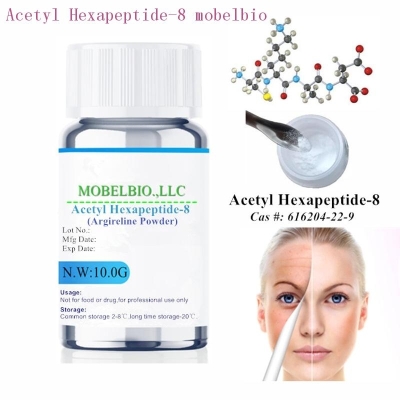Looking at the back of the bribery case from the Glaxo incident: the game of foreign drug price cuts
-
Last Update: 2013-08-01
-
Source: Internet
-
Author: User
Search more information of high quality chemicals, good prices and reliable suppliers, visit
www.echemi.com
It is believed that one of the important reasons for the rise of drug prices in China is the pull of drug prices of foreign pharmaceutical enterprises For example, before 1996, the pricing method of joint venture pharmaceutical plants was mainly determined by the enterprises themselves referring to the imported drugs The price of foreign drugs was already high In addition to the high import tariff, the price of imported drugs was much more expensive than that of domestic drugs He puting 207 yuan, he Weili 255 yuan, shulidi 220 yuan GlaxoSmithKline (GSK) has been the target of high price drugs since the bribery scandal Although there is no information about price adjustment from any government department, it is widely believed that the high prices of foreign pharmaceutical companies will lead to a round of price reduction On July 30, the head of public relations of a foreign pharmaceutical company said: "this year is the year of national health insurance catalog adjustment, and further drop in drug prices was also an event of approximate rate." In July 2012, Huang Xuming, director of Beijing Medical Insurance Center, disclosed that the medical insurance Department of the Ministry of human resources and social security will adjust the medical insurance catalogue in 2013 At present, the national medical insurance catalogue is formulated in 2009 and adjusted in 2013, which is expected to include more rare disease treatment drugs Most of the drugs for rare diseases are foreign-funded varieties, which face great pressure of price reduction In 2010, the Ministry of human resources and social security investigated the way of price negotiation to bring high priced foreign drugs into medical insurance, but it failed in the end A number of pharmaceutical industry people said frankly that investigating the space for drug bribery will "touch more" foreign funded pharmaceutical enterprises Zhengzhou police set up a task force to investigate GlaxoSmithKline's Chinese company, and 18 other people were arrested, Reuters said on July 29 The Wall Street Journal also reported that mark Rui, general manager of GlaxoSmithKline China, would return to China to cooperate in the investigation in the near future Four Chinese executives have been detained by Chinese police It is believed that one of the important reasons for the rise of drug prices in China is the pull of drug prices of foreign pharmaceutical enterprises For example, before 1996, the pricing method of joint venture pharmaceutical plants was mainly determined by the enterprises themselves referring to the imported drugs The price of foreign drugs was already high In addition, the price of imported drugs was much more expensive than that of domestic drugs, especially the price of imported patent new drugs during the protection period At present, there are 1500 foreign pharmaceutical enterprises in China, and the top 20 multinational pharmaceutical enterprises in the world have established joint ventures in China Some of them have also established wholly-owned enterprises, and the market share of imported and joint-venture drugs has exceeded 50% In addition, varieties that have passed the patent protection are often able to maintain high prices in China, far exceeding the price of generic drugs of domestic enterprises For example, in 2009, generic drugs appeared in GSK, but the price of original research drugs is still three times that of generic drugs In 2001, the former State Planning Commission set a separate pricing right for drugs, and most foreign drugs obtained this qualification For these pharmaceutical companies, this is considered a special benefit for emerging market countries Within Pfizer, the business models of developed markets such as Europe and the United States and emerging markets such as China and Brazil are totally different "Emerging markets are slow to start and the total volume is not large," said the person However, due to the fact that some patent expired drugs are later on the market than those in Europe and the United States, the market performance also lags behind, so there is still a lot of room for development It's not like a mature market " The GSK event may change the way that foreign companies operate The case of GSK proves that the profit space of independent pricing has become the bribes of doctors and the kickbacks of company executives, which deviates from the original intention of "encouraging new drug research and development" Since 2010, the national development and Reform Commission has repeatedly lowered the price and disqualified drugs priced separately For some foreign patent drugs that have been imitated in China, the single price reduction is even more than 20% But some patent medicines without substitutes are hard to cut down An official from the drug price department of the national development and Reform Commission previously said: "the national development and Reform Commission has been comparing the prices of similar drugs at home and abroad, but there are many factors affecting prices and consumers, such as taxes and medical insurance payments, which are not as simple as simply comparing prices." Research past events: why not enter the medical insurance price decline and reimbursement ratio has always been the focus of the game between the government and the enterprise medical insurance catalog is the inevitable competition of each pharmaceutical enterprise Entering the medical insurance means that the national payment ratio will reach at least 60%, and the drug sales will be guaranteed However, due to the high price of some foreign-funded original research drugs and the pressure of medical insurance payment, the Ministry of human resources and social security considered to increase the "price negotiation mechanism", that is, through negotiation, to make the high-priced drugs yield profits, and at the same time, to give part of the proportion of medical insurance reimbursement The original intention of this kind of practice is very good, but in the process of practice, there are problems in the access of mechanism At the beginning of 2010, the Ministry of human resources and social security preliminarily delineated a dozen foreign pharmaceutical enterprises, including MSD, etc., and agreed to reduce the price by 10% - 20% for some original research drugs in real need Then, some domestic enterprises think that the first batch of price negotiation finalists are all foreign-funded enterprises, which is unfair to domestic R & D enterprises After many protests, this "negotiation path" finally came to an end At present, only Novartis' Gleevec, Kemena and Roche's Herceptin have entered the provincial medical insurance payment scope in Zhejiang, Guangdong, Jiangsu and other developed regions through price negotiation Beijing, Shanghai and many other foreign drugs are still outside the threshold of price negotiation - price reduction and reimbursement ratio have always been the focus of the game between the government and enterprises The health and Family Planning Commission is also carrying out some attempts For example, the new version of the national essential drug catalogue issued in 2013 requires that the generic name of drugs be used as the access basis, ignoring the factor of independent pricing of patented drugs In the first half of this year, Shaanxi, Guangdong and other provinces also put forward strict requirements in the bidding, hoping that foreign varieties can reduce their status and be included in basic drugs But the actual effect is not good In 2010, MSD reduced the price of its drugs by more than 50% in response to the national basic drug policy, competing with domestic drugs at the same price level According to the sampling data, although Shujiang's sales volume increased by 46%, the sales volume decreased by 3% This may be the reason why foreign counterparts are afraid to reduce prices Foreign companies argue that the price of domestic generic drugs is too low, and foreign pharmaceutical companies expect the price of domestic drugs to rise, so as to relieve their pressure of "being too high and too few" It is not only consumers who are not satisfied with the price of drugs, but also foreign pharmaceutical companies are quite critical Take suletide, an asthmatic drug of GSK, which was involved in bribery, as an example In the U.S market, the current standard of 50 / 100 of shulidi costs $214.65 per month, compared with about 220 yuan in China Under such a price contrast, if domestic enterprises still have to pay the "bribery cost" to promote sales, it will put great pressure on enterprises to explore the Chinese market So far, GSK China accounts for only 3% of GSK's global sales, despite its impressive growth In the second quarter of 2013, GSK's sales of drugs and vaccines in China increased by 14% year on year to reach 212 million pounds (about 325 million US dollars) However, compared with domestic drugs, the price of foreign drugs is still relatively high "Fundamentally speaking, the price of domestic generic drugs is too low, which highlights the high price of patent drugs," said the head of public relations of foreign pharmaceutical companies A survey once said that the price of domestic generic drugs is only 20% - 30% of the world level More than 4000 domestic pharmaceutical enterprises are in a state of low-level competition and can only rely on price competition " At the same time, the amount of domestic medical insurance payment is also a big problem Many foreign patent drugs are not included in the reimbursement of medical insurance, and the patients have a heavy burden, which has become the reason for criticizing the high price of foreign drugs Many foreign pharmaceutical companies and foreign pharmaceutical associations (rdpac) hope to establish a pharmacoeconomic evaluation system to balance drug prices and profits "There are only a few experts studying pharmacoeconomics in China, and their research results are rarely used directly for pricing reference," said Zuo yuzeng, director of rdpac media The National Institute of clinical practice (NICE) is one of the more mature institutions in the use of pharmacoeconomics According to Bloomberg data, from January 2010 to August 2012, the European Drug Administration approved 79 new drugs, 26 of which were rejected by nice to enter the UK market because of its high price or to reflect the treatment advantage But Zuo yuzeng said frankly, "the cost of these studies is very high, and the technology used is also very complex." In contrast, foreign pharmaceutical companies are more looking forward to the price rise of domestic drugs to ease their pressure of "being too high and too few" In July this year, the State Food and Drug Administration announced the work of consistency evaluation on more than 70 drugs "With the implementation of the new version of GMP this year and the implementation of the consistency evaluation, if it can be reflected in the drug price, the withdrawal of small enterprises may lead to the increase of drug price," said the above pharmaceutical enterprises There will be pressure from foreign companies "
This article is an English version of an article which is originally in the Chinese language on echemi.com and is provided for information purposes only.
This website makes no representation or warranty of any kind, either expressed or implied, as to the accuracy, completeness ownership or reliability of
the article or any translations thereof. If you have any concerns or complaints relating to the article, please send an email, providing a detailed
description of the concern or complaint, to
service@echemi.com. A staff member will contact you within 5 working days. Once verified, infringing content
will be removed immediately.







